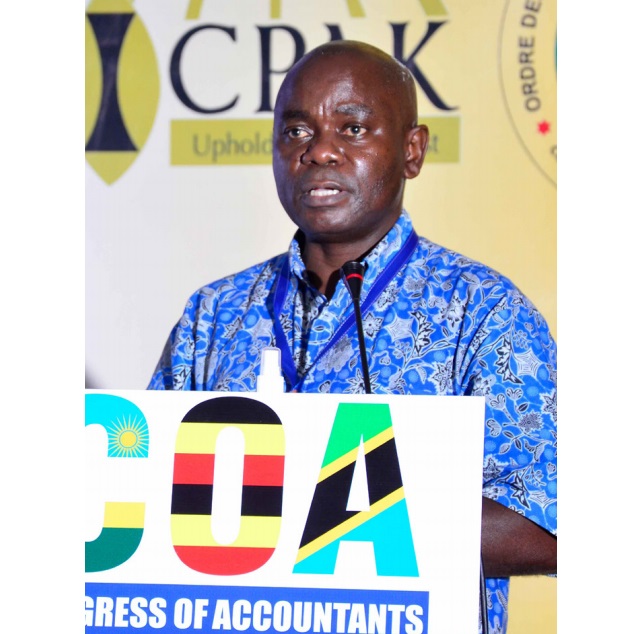
2021 EAC congress of accountants exposes economic integration opportunities
Kampala, Uganda | JULIUS BUSINGE | Uganda on April 14-16, hosted the third East African Congress of Accountants to deliberate about economic integration issues.
The congress that attracted about 1,000 participants both online and physical, was held at a time Ugandan authorities were engaging its trading neighbours (Kenya and Rwanda) to iron out trade-related conflicts that have lasted for almost two years.
The Congress was initially scheduled for March but was postponed owing to covid-19 lockdown measures.
Themed ‘Integration for Accelerated Economic Growth and Development,’ the congress was organised by The Institute of Certified Public Accountants of Uganda (ICPAU) in conjunction with the National Board of Accountants and Auditors (NBAA), the Institute of Certified Public Accountants of Kenya (ICPAK), the Institute of Certified Public Accountants of Rwanda (ICPAR) and Ordre Des Professionnels Comptables Du Burundi (OPC).
EACOA brought together notable professionals, thought leaders and experts to deliberate and craft solutions to underlying challenges within the profession and wider issues of EAC market integration.
Uganda’s Finance Minister Matia Kasaija, who officially opened the congress on April 15, told participants that regional integration is no longer a matter of choice or debate but has been recognised as one of the key drivers of economic growth and sustainable development.
Uganda, he said produces more than what it consumes for certain commodities including milk, maize and others which is why trading with neighbouring countries and beyond, is critical.
Beyond EAC, Kasaija said, Africa must pursue an industrialisation agenda for as long as the market for goods is available. He also said, African countries must increase trading volumes amongst themselves. He referred to the data by the African Development Bank that puts intra-African trade at 15%, lower than the 54% for the North American Free Trade Area, 70% within the European Union and 60% in Asia.
Fortunately, he said, with a population of 1.2billion people, integration in Africa has potential to blossom because it [population] would provide a big market.
Within the EAC, Kasaija said, integration has been anchored on regional infrastructure developments, industrialisation and trade, strengthening country and regional integration mechanisms and enhancing institutional capacities.
Effective implementation of these requires aggressive mobilisation of resources within member states according to Kasaija.
He also said players in the world market have to keep their eyes and ears on new developments because the world is changing all the time.
“You are professional people but you must continue learning to succeed,” Kasaija said, “we need more professional, ethical accountants because they are key in making the economy progress,” he added.
Fred Muhumuza, a senior economist and lecturer at Makerere University delivered the keynote speech. He said integration is primarily about politics with economic growth and development coming in as secondary objectives.
He said East Africans should think about integration in the broader sense of global linkages, rather than merely a regional aspect.
He added that individual countries should prioritise individual growth in order for the integration efforts to yield tangible results.
“You need to be a strong economy to benefit from the integration,” he said.
He said poverty remains a big deadlock to many countries including Uganda due to geographical and other factors.
For instance, he said, Uganda’s GDP (about 70%) is concentrated in Kampala, the capital city whereas Northern, Eastern and Western parts of the country continue to lag behind with population there engaging in informal and low income yielding ventures.
As COVID-19 continues to bite, government needs to direct the national budget to survival and recovery programmes and avoid wasteful expenditure.
All EAC economies have reported decline in economic growth activities.
Uganda Bureau of Statistics, for instance, says, Uganda’s economy contracted and grew by 2.2% in Q1 of FY2020/21 compared to 8.7% in the same period of last financial year.
Government officials project GDP to pick up to 3-3.5% by end of FY2020/21 and to 4-5% in the coming 2-3 years’ time as government continues to open the economy and fight COVID-19.
Muhumuza said growth will require the right people with required skills across all sectors.
Similarly, Patrick Ayota, the deputy managing director at National Social Security Fund, linked the success of integration to how actors in the economy are using technology, human resource capabilities to deal with current challenges.
He mentioned three issues – collaboration, agility, innovations – as critical for fuelling business growth and economic recovery.
Sandra John Chogo from the National Audit Office of Tanzania spoke about the impact that the 4th industrial revolution is creating and how it is influencing the economics of countries.
She says, the world is changing with automation of traditional manufacturing and industrial practices and use of modern smart technology.
“We are moving to digital economies…meaning we will need few people to employ,” she said.
Chogo said, the population needs to acquire relevant skills to match with the changing trends brought about by technology and internet of things.
****
 The Independent Uganda: You get the Truth we Pay the Price
The Independent Uganda: You get the Truth we Pay the Price


